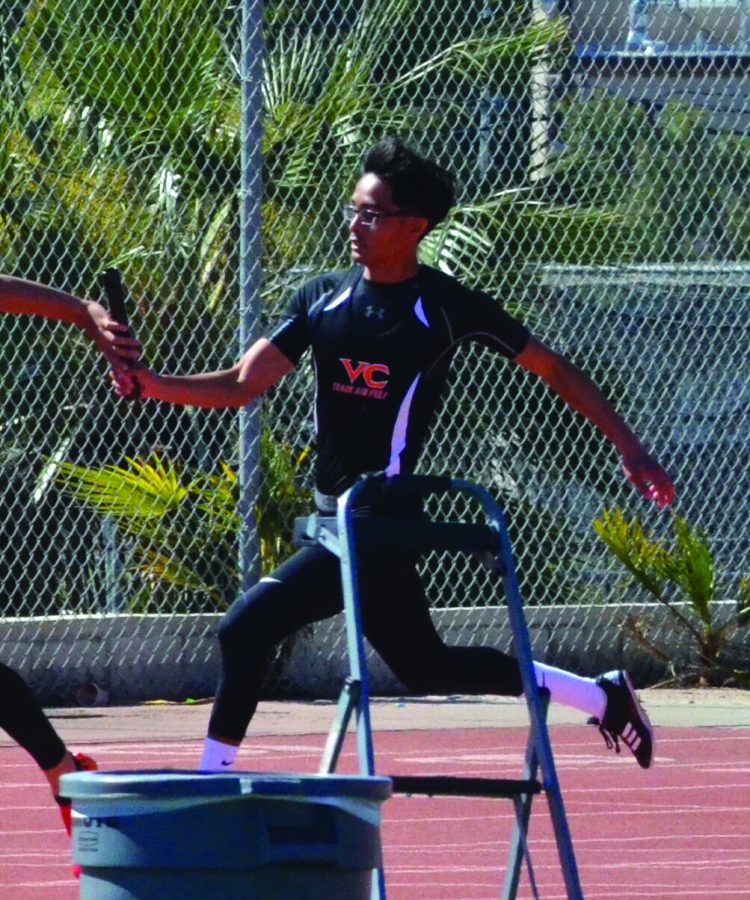Eating Intuitively: a College Athlete’s Experience Overcoming Negative Food Habits
January 23, 2023
During my years of running collegiate track and field, I developed an unhealthy relationship with food that was rooted in a negative body image and amplified by the practice of tracking everything I consumed.
I needed to know the exact number of calories, carbohydrates, grams of protein, and fat in everything I ate. It didn’t matter if it was the syrup I poured on pancakes or the bland chicken and rice I prepped for lunch: I wasn’t going to eat it unless I knew the nutritional facts.
This habit started with good intentions. I wanted to optimize my diet for my performance as a runner. I never expected that I would take it too far and turn calorie tracking into an obsession that shone a light on insecurities I was in denial of.
Although I was never diagnosed with an eating disorder, my relationship with nutrition turned my seemingly healthy lifestyle as a runner into one tainted by an insatiable craving to eat a certain way to achieve a certain look in the mirror.
From 2018 to 2020, I weighed 120 pounds at the most and dropped as low as 114 pounds during my two seasons of running track at Ventura College. Since I was a sprinter, I trained with the mindset that gaining weight would only slow me down in the short-distance races I competed in. My obsession with tracking food brought that ideology to the extreme as I began to lose weight, likely from overestimating how many calories I ate while underestimating how many calories I burned. Sometimes, I would intentionally cut back on food as a response to seeing any sort of tummy bulge, tricep flab, or anything on my body that signified I was gaining weight.
What I feared most was gaining unwanted fat on this skinny frame I’ve been insecure about forever. It didn’t help that my team’s uniform of a tight-fitting track jersey with compression shorts accentuated the shape of any runner’s body. This made me worried about my physical appearance as much as my athletic performance.
Looking back, I think my rational self would realize that putting on more weight wouldn’t have hurt. My insecurities with my body image made it difficult to recognize that truth. Instead, I fixated on what I ate to ensure that I wasn’t losing what little muscle I had or gaining any fat.
When I or my family cooked at home, I always pulled out my mini scale to weigh every single gram of food and drink I prepared so that I could accurately input the number of calories, protein, carbohydrates and fat into my calorie-tracking app. If I was eating out, I was busy reading an online pdf of the restaurant’s nutrition info while my family looked at the regular menu.
Taking at least one of these precautions was a ritual for me and if I didn’t do it, I would be reluctant to take a single bite no matter how hungry I was. Eating began to feel like a chore, rather than a relaxing time to enjoy a meal with friends and family.
I distinctly remember stressing out about going to a Thanksgiving dinner at my aunt’s house because I knew it would be challenging to track all my food while fighting the temptation to binge at the sight of a full dinner table. I also wasn’t going to bring my food scale as I knew I’d look silly. I starved myself in the days leading up to Thanksgiving to prepare for potential binge eating.
When the day came, I limited myself to stupidly small portions of food, including my Filipino favorites of lumpia and pancit. I sat there eating, jealous of my family who indulged in every delicacy their plates had room for. No one should leave a Thanksgiving dinner starving, but I did.
Ultimately, my unhealthy relationship with food ended up hurting as much as it may have helped me during my years of running track. Although I became more aware of what a healthy diet looks like and what types of nutrients I should consume to support my performance, that knowledge came at the expense of obsessing over every piece of food that entered my body.
Thankfully, I’ve reached a point where I eat intuitively based on my hunger levels, rather than letting a calorie-tracking app dictate my diet and body image. I stopped tracking my calories about a year and a half ago after working at a summer camp where I got to disconnect from technology and enjoy the present without the constant distractions from my phone. Going the whole summer without tracking any food made me realize that I didn’t need that habit to stay healthy and live peacefully. Nonetheless, going through this stage of nutrition obsession was a big learning lesson that has helped me nurture a healthier relationship with food today.
